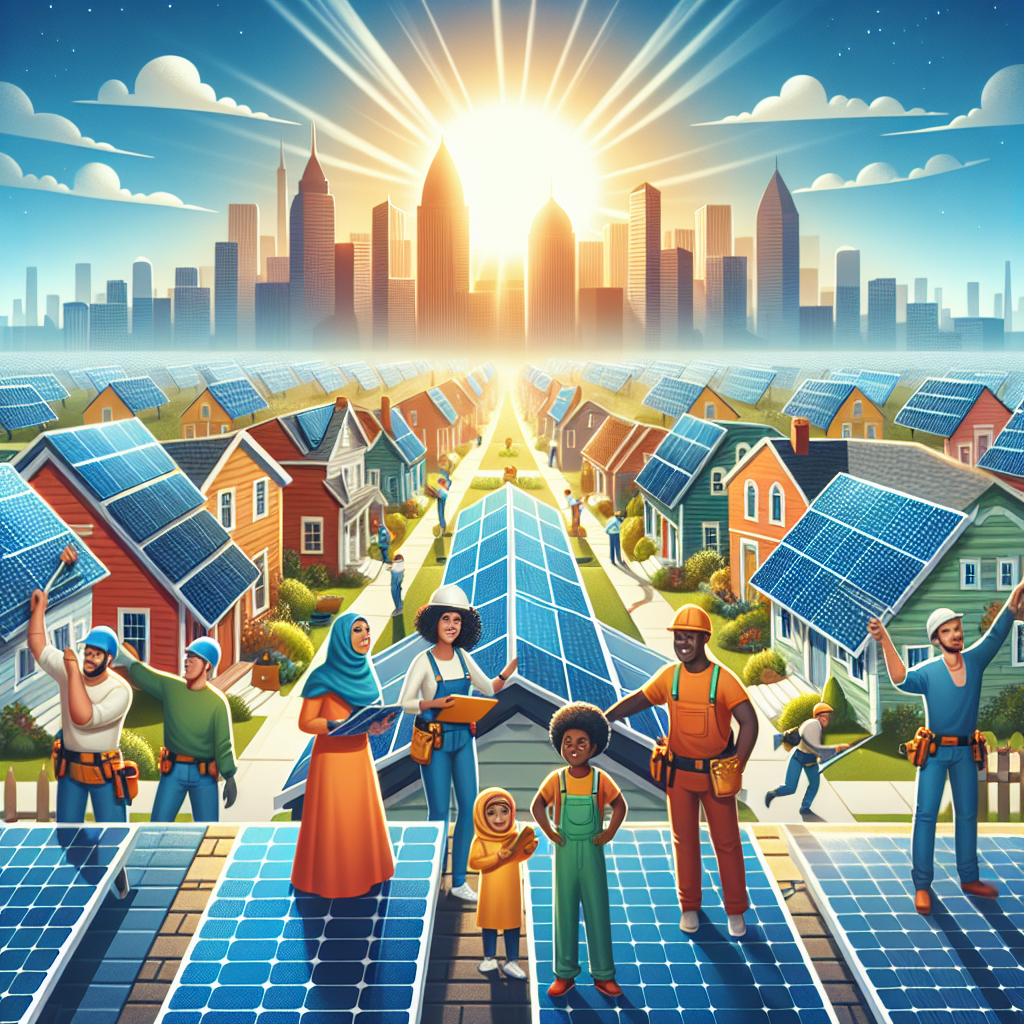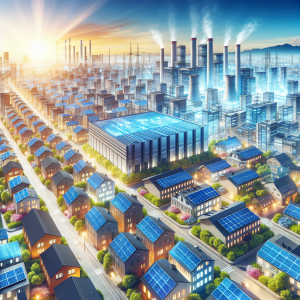Transitioning to renewable energy solutions is gaining momentum as the push for sustainable and environmentally-friendly energy sources continues. There’s a growing interest in moving “off the grid,” which refers to being independent of traditional power grids, often appealing to those seeking autonomy and sustainable living. Renewable energy solutions such as solar, wind, hydro, and biomass play pivotal roles in this transition, offering diverse options to suit various environmental conditions and energy needs.
Solar energy is undeniably a frontrunner in off-grid solutions. Photovoltaic (PV) panels harness sunlight and convert it into electricity, providing a reliable and abundant energy source almost anywhere in the world. Technological advances have made solar panels more efficient and affordable, allowing homeowners and businesses to generate their own electricity. Coupled with battery storage systems, solar energy systems can supply power even during cloudy days and nighttime, ensuring a consistent energy supply. For optimal results, it’s crucial to assess factors like local climate, roof orientation, and shading when installing solar panels. This assessment maximizes energy production and ensures a cost-effective investment.
Wind energy is another potent solution for off-grid living, particularly in regions with consistent wind patterns. Small-scale wind turbines can be installed on properties to harness wind power. These turbines convert wind kinetic energy into electricity, often working alongside solar panels to provide a comprehensive renewable energy system. The synergy between wind and solar energy solutions is particularly advantageous because wind speeds tend to be higher at night and during winter months, complementing solar energy’s daytime and summer-season strengths. However, assessing wind resources before installation is essential, considering factors like average wind speed and potential obstructions.
Hydropower offers another avenue for off-grid energy, especially in areas with access to flowing water sources. Micro-hydro systems can generate continuous electricity, providing a stable energy supply as long as the water flow is steady. These systems are particularly appealing for remote areas where other renewable resources might be less reliable. Micro-hydro setups can power entire homesteads or small communities, assuming a consistent water source. The installation of micro-hydro systems can be more complex due to permits and ecological considerations, but they present a viable renewable energy solution when executed properly.
Biomass energy, derived from organic materials like plant and animal waste, presents an additional off-grid energy option. Biomass can be converted into biofuel, biogas, or direct heat for electricity and heating needs. This form of renewable energy is particularly beneficial in agricultural areas, where waste products can be repurposed into energy. Biomass systems often work best in combination with other renewable sources, offering additional energy security and diversity. This approach minimizes the dependency on any single energy form, optimizing overall system resilience.
Implementing renewable energy solutions for off-grid living requires thoughtful planning and execution. Energy needs assessment is the first critical step, involving calculations of total energy consumption to determine the size and type of systems required. Tailoring these solutions to specific geographical and climatic conditions ensures maximum efficiency and cost-effectiveness. For example, solar power is ideal for sunny regions, while wind power suits windy locales. An integrative approach often employs multiple solutions, maximizing reliability and efficiency. Hybrid systems combining solar, wind, and biomass can offer consistent energy regardless of weather conditions or time of year.
Battery storage technology has emerged as a crucial component of off-grid systems, addressing intermittency issues associated with solar and wind power. Advances in lithium-ion and other battery technologies have significantly improved energy storage capacity, making it easier to maintain a steady power supply. Energy management systems also play an essential role, optimizing energy use and storage, and often leveraging smart technology to enhance efficiency and reduce wastage. These systems enable users to monitor energy production and consumption in real-time, facilitating informed decisions to streamline energy use.
Additionally, communities are increasingly exploring communal off-grid solutions, where small communities collaborate to create shared energy systems. These micro-grids offer a reliable energy source, optimizing resource sharing and minimizing individual burden. They are particularly effective in remote areas where extending traditional grid infrastructure is not feasible. Policy frameworks and incentives also significantly impact the adoption of off-grid renewable solutions. Many governments provide incentives, such as tax credits and grants, to promote renewable energy projects, encouraging more individuals and businesses to transition toward independent energy systems.
Exploring off-the-grid renewable energy solutions promotes environmental sustainability by reducing reliance on fossil fuels and decreasing carbon footprints. The environmental benefits are substantial, as renewables offer cleaner, less polluting alternatives to traditional energy sources. Moreover, off-grid systems enhance energy security, particularly significant in regions prone to power outages or where energy access is limited. Investing in renewable solutions fosters local economic development by generating jobs in installation, maintenance, and research sectors.
Adopting off-grid renewable energy solutions requires initial investments, potentially high depending on the system’s scale and complexity. However, the long-term savings and environmental benefits often outweigh these upfront costs. As technology progresses and costs continue to fall, off-grid living becomes increasingly accessible to a broader demographic. Embracing off-grid renewable energy solutions is not merely a personal choice but a collective step toward a sustainable, resilient future, demonstrating commitment to mitigating climate change’s impact and promoting eco-friendly practices.



